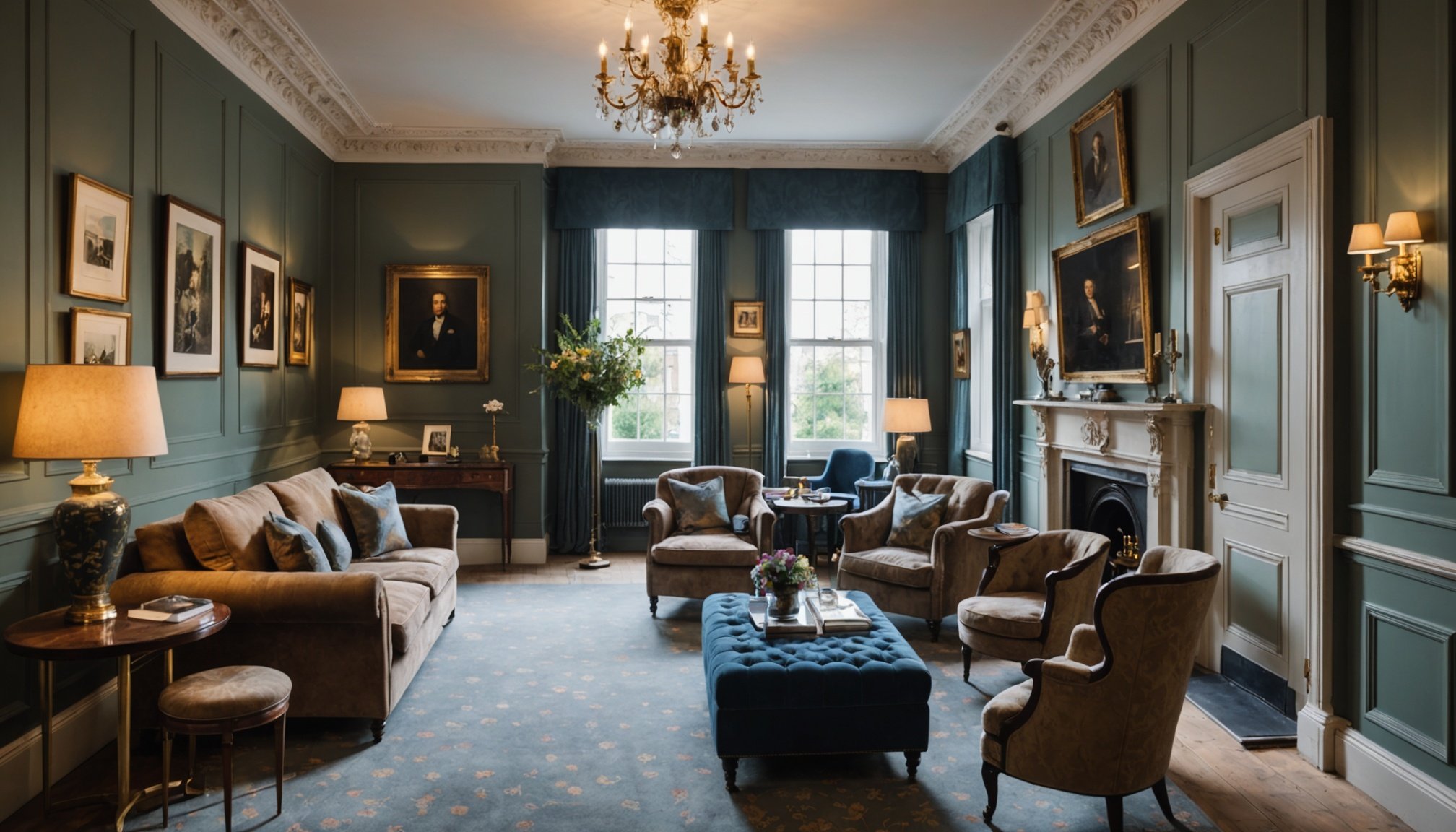Planning the Transformation
Revamping a historical property into a boutique hotel requires meticulous planning. Start with a thorough research and feasibility study: assess the property’s architectural integrity, local regulations, and potential market demand. Knowing these factors ensures a smooth transition while preserving historical charm.
Setting clear goals and objectives shapes the unique hotel experience you desire. Consider the niche market: will your boutique focus on luxury, history, or culture? Define your target demographic to tailor services and ambience.
Also to read : Top Sustainable Alternatives to Traditional Plaster for Your UK Home Renovation
For project management, establish realistic timelines and milestones. Determine when various phases, like renovations and interior design, should begin and conclude. Leveraging software tools for scheduling and tracking progress keeps tasks on track and within budget.
Key strategies include:
Have you seen this : Top Sustainable Alternatives to Traditional Plaster for Your UK Home Renovation
- Detailed feasibility assessments to gauge project viability
- Defining specific, measurable goals to direct development
- Effective use of timelines to streamline renovation stages
Remember, renovating a historical property demands patience and precision. Respect its legacy while modernising it for contemporary guests, ensuring the boutique hotel offers an exceptional stay. Employing strategic planning allows for innovative transformations that honour a building’s past while embracing its future.
Legal and Regulatory Considerations
When considering a boutique hotel in the UK, understanding the intricate property laws is essential. Key factors include the necessity of obtaining planning permissions, especially if the building is historical. This involves detailing proposed changes and demonstrating their impact on the neighbourhood.
Boutique hotel regulations further dictate licensing requirements. First, you need a premises licence to sell alcohol. This involves proving adherence to safety and noise standards. Building regulations also apply, emphasising safety, accessibility, and energy efficiency. Each change must respect the structural and aesthetic significance of the property.
If your property is within a conservation area, additional restrictions may apply. These areas are designated to preserve historical and architectural significance, meaning stricter rules on alterations. Such regulations ensure the character and charm of these localities remain intact.
To navigate these complex systems efficiently, consulting with local planning authorities is advisable. They provide specific guidance tailored to your property’s needs, simplifying compliance and ensuring a smooth approval process. Stay informed about these legal aspects to forge a successful path in the UK’s boutique hotel industry.
Design Considerations
Crafting a boutique hotel with a unique character involves intertwining modern appeal with historical aesthetics. This careful balance not only preserves the charm of a bygone era but also ensures contemporary comfort.
Blending Modern and Historical Elements
Boutique hotel design thrives on juxtaposing sleek, modern furnishings with historical architecture. Integrating technology seamlessly while respecting the building’s original design is key. For instance, hidden wiring and discreetly placed gadgets help maintain the authentic vibe without compromising modern convenience.
Creating Inviting Guest Spaces
The ambience of guest spaces should reflect both luxury and functionality. Thoughtfully selected furniture — such as plush seating juxtaposed against exposed brick walls — enhances comfort while respecting the hotel’s historical essence. Utilizing open layouts can create a welcoming atmosphere, inviting guests to relax and mingle.
Incorporating Local Culture and Heritage
A successful boutique hotel design honours its locale by infusing local culture and heritage into its aesthetic. Engaging local artisans to craft pieces using regional materials can add a layer of authenticity. From handcrafted pottery to intricately woven textiles, these elements bring the history and culture of the area to life, ensuring a genuine guest experience.
Financial Planning and Budgeting
Developing a sustainable business model for a boutique hotel involves meticulous financial planning. Renovation budgeting is a critical aspect, requiring an accurate estimation of both renovation and operational costs. This doesn’t just ensure efficiency; it safeguards against unforeseen expenses. Typically, a well-structured renovation budget must consider factors like materials, labour, unexpected delays, and regulatory fees.
Identifying potential funding sources and grants plays a pivotal role. Banks and investors frequently seek comprehensive business plans before committing funds. Public grants may also offer substantial assistance if the boutique hotel aligns with regional tourism priorities. Therefore, understanding the criteria and application processes for these opportunities is crucial for acquiring necessary funds.
Crafting a robust financial strategy combines renovation budgeting with reliable revenue projections, ensuring profitability. Seasonal variations must be considered when projecting occupancy rates; likewise, understanding customer demographics helps in crafting effective marketing strategies. By maintaining a balance between strategic spending and revenue growth, boutique hotels can achieve long-term financial stability.
Effective financial planning thus relies on thorough research and consistent monitoring, adapting to changes in market conditions while staying true to overarching business goals. Keep precise records to facilitate real-time performance evaluations and informed decision-making processes.
Market Analysis and Target Audience
In recent years, the boutique hotel industry has experienced significant growth, driven by evolving consumer preferences and distinctive experiences. Recognising and responding to current market trends is crucial for success. Consumers increasingly seek personalised and authentic experiences, steering away from standardised hotel chains. This trend reflects a demand for unique aesthetics, location-inspired designs, and local cultural elements within hotels.
To effectively reach your intended audience, it is essential to have a deep understanding of your target demographics. Typically, boutique hotel guests are Millennials and Gen Z, who value individuality and experiential stays. Preferences include customised services, eco-friendly practices, and seamless integration of technology. By aligning with these desires, hotels can capture the attention of discerning travellers.
Conducting a comprehensive competitive analysis is another critical step. This involves examining what differentiates your hotel from others in the market and identifying niche opportunities. Perhaps your establishment offers exclusive local art showcases or culinary experiences that highlight regional ingredients. Focusing on these unique aspects will enhance your appeal to your target audience. Emphasising what sets your hotel apart ensures you are not just competing on price but on the quality of experience offered.
Case Studies of Successful Transformations
In the world of boutique hotels, success stories serve as inspiring examples for aspiring hoteliers. Across the UK, several boutique hotels stand out for their remarkable historical renovations and unique transformations. These establishments not only honour their heritage but also offer contemporary luxuries.
Take, for instance, the transformation of a Victorian mansion into a boutique retreat. This hotel’s commitment to preserving original architectural features while incorporating modern amenities is a testament to successful adaptive reuse. Hoteliers embarking on similar projects can learn from the careful balance between conserving history and providing a luxurious experience to their guests.
Another example is a Georgian townhouse turned boutique hotel, which showcases the importance of storytelling in hospitality. By weaving a narrative of its historical significance into the guest experience, it has created a unique brand identity that resonates with visitors.
Key takeaways from these success stories include:
- Understanding the property’s history and utilizing it as a selling point.
- Maintaining original features to retain authenticity.
- Offering modern comforts to ensure guest satisfaction.
Aspiring hoteliers should draw lessons from these case studies to enhance their strategies and potentially revolutionise their ventures.
Strategies for Attracting Clientele
In the competitive world of boutique hotel marketing, establishing a strong online presence is essential. A captivating website paired with effective marketing campaigns can attract potential guests. Utilizing search engine optimization (SEO) ensures higher visibility and access to target demographics. Creating an engaging website experience is critical, as first impressions often dictate a customer’s final decision.
Guest experience enhancement is equally important. Excellent customer service fosters loyalty, increasing the possibility of repeat visits. Providing personalized touches, like customized welcome packages, shows guests that their comfort matters. Receiving positive reviews due to outstanding customer experiences further boosts a hotel’s reputation.
Leveraging social media platforms is an effective way to engage with potential guests. Regular, creative posts capture audience interest and showcase unique hotel features. Engaging with followers by responding to comments or hosting virtual tours encourages a deeper connection.
Partnerships with local businesses amplify boutique hotel marketing efforts. Collaborations, such as offering discounts or packages with local attractions, enhance the guest experience by providing added value during their stay. These partnerships can also increase a hotel’s visibility within the community, benefiting both parties involved.











